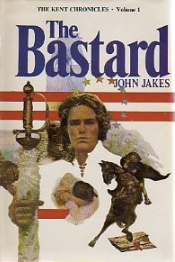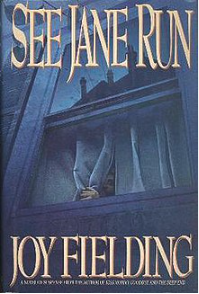Book Snobs & Sour Grapes
- kristin5141
- Apr 14, 2025
- 6 min read
Updated: Apr 15, 2025
I am a writer because I am a reader. The reading part came first -- so long ago that I can't remember a time when stories weren't an important part of my life. Knowing I can't possibly read every book written before I die is both a comfort and a cause for panic. There will always be books for me to read, but what if I miss something really good?

Like most readers, there are many factors that influence my choice of reading matter. Many books I read because they were given to me. At the moment I'm reading Spare by Prince Harry (and a ghost writer who gets no credit but should). I would likely never have chosen this book -- memoir isn't my go-to genre -- but my niece-in-law lent me her copy. And I'm enjoying it. (I know it's been a year and a half, Brenda, but I will get it back to you. I promise.) For the purposes of this blog, I visited Goodreads to see how other readers liked the book. Based on over 400,000 ratings, Spare is coming in at 3.84 stars. That's pretty good, but the very first rating gives the book just one lowly star. That reader also left a review, so I read what she had to say. She was clearly thoughtful and respectful -- no trash-talking here, but it seemed to me that for the most part, her critique was based on her knowledge and opinion of the British royal family soap opera and not on the actual book. She was opposed to Harry's position, so she panned the book. Thankfully I'm not that knowledgable about the royals and therefore have no pre-conceived notions about who the good and bad guys are, and I've done enough living to know this sort of book is going to be biased. Any memoir is going to be biased. But that doesn't mean it can't be a story well-told and I can't enjoy it. I'm only a quarter of the way through, so it's still too early to say, but so far, so good.

I sometimes seek out books that have received a good deal of publicity. They could be well-promoted, made into movies, be on best-seller lists, etc. The point is they're in-your-face out there, so I keep hearing about them. That prompts me to check the storyline to see if it's the sort of tale I'm drawn to, and if it is, I read it. Where the Crawdads Sing by Delia Owens was such a book. It was a terrific read. I recommend it to everyone. If you want to know my full opinion of it, visit the blog where I reviewed it.

My TBR pile is also impacted by the public service sector of my life. My former dental hygienist and I not only discussed books; we swapped them. I have a small house and nowhere to keep a book collection, so I generally pass books along. My copy of Those Lovely Bones went to my hygienist. Likewise a real-life experience by a former nail tech inspired me to write Cheat. (Not exactly influencing my reading choices, but it certainly influenced my writing.) I used to look forward to my hair appointments just to discuss books with my stylist. A book is always more fun when you can talk about it with someone who's also read it. We shared scads of books and recommendations. A Man Called Ove and A Gentleman in Moscow are both fabulous reads she put me on to. She also recommended Water for Elephants which I have reserved at the library.
And though we're told not to judge a book by its cover, it is the cover that sometimes draws me to a book. There is no better way to spend a stolen hour than walking the aisles of a bookstore or library, slipping the books off the shelf, trying to imagine the story based on the cover art and then reading the back blurb to see if it jives. If I'm really intrigued, I'll start reading the first page to see if the writer's style draws me in. If the book is historical fiction, I'm already halfway hooked. Most of what I know about South Africa and Asia are thanks to the novels by Wilbur Smith and James Clavell. And I can't resist a saga. A series that extends over several generations? I'm there. Thank you John Jakes (The Kent Family Chronicles), William Stuart Long (The Australians), Diana Gabaldon (The Outlander Series), and of course, Wilbur Smith (The Courteneys of South Africa).
Something that can make me cross a book off my adult reading list though is its inclusion on an award list. I'm talking primarily Booker and Giller prize lists. I have, on several occasions, read books which won the aforementioned prizes and was totally disappointed and disgusted each and every time. In some cases, the writing was terrible and in others, I was hard-pressed to find the story. Sometimes both! When I listen to critics rave about these books, I can come to only one conclusion. They are book snobs. Reading is supposed to be enjoyable and entertaining, but these books they are touting are neither. They ramble, have no purpose, are difficult to follow, flaunt literary conventions, etc, etc, etc.

Easy reading and understanding are prerequisites to enjoying a book, yet these are qualities the literary aficionados turn their noses up at. Instead they exalt the obscure. Take Ducks, Newburyport by Lucy Ellman. It is a 1000-page novel comprised of one sentence. A friend (in disbelief) bought it and tried to read it. She didn't get far. And yet this book won the Booker Prize in 2019. Tell me, please, who is going to want to read such a book? What good reason is there to write a book using just one sentence? Do you have to read it in one sitting? Where are the page breaks that give you a chance to think about what you've read? How is dialogue included, or is there any dialogue?
Since I haven't attempted it myself, I suppose I'm not entitled to voice an opinion on this book, but get serious. The only reason it -- and others like it -- are praised to the heavens is because they're 'different'. They're quirky. That doesn't make them better. In fact, those are terrible yardsticks by which to evaluate a book.
The people who claim these sorts of books are wonderful are the same people who refuse to acknowledge the appeal of books by writers such as Stephen King and Joy Fielding. I once watched a respected reviewer and book prize judge of adult fiction being interviewed. She acknowledged without hesitation that Stephen King's books would never be considered for any major prizes, because they aren't literary. (Translation: they tell a story, they're not difficult to understand and readers like them.) I'm not a Stephen King fan myself -- not because I think he's a terrible writer. To the contrary. I think he's an excellent writer. I totally enjoyed his book, On Writing. I just don't do horror, and with few exceptions, that's what he writes.
As for Joy Fielding -- she doesn't even merit disdain from the literary pundits, yet she's probably more monetarily successful than any other Canadian novelist. (I haven't fact-checked this, but I know she makes a good living from her writing and most of us writers don't.) As of 2022, she had 30 published novels and 1 novella. And that's probably why Canadian reviewers ignore her. She writes mysteries -- books people enjoy reading, not books they have to work at understanding. Not books which make them feel stupid because someone who's supposed to be a book expert said the book is wonderful and they didn't get it, never mind enjoy it.
The snobs would argue that 'literary' books are elevated, the use of language is superior, the message is deeper, etc. They would say such books make people think more and contemplate the world in terms they never have before. To them I would say, you need to read more broadly. If people have to work at understanding what they're reading, the writer hasn't done his job. Nathaniel Hawthorne said "Easy reading is damn hard writing," and that's the truth. The writer's goal should be to tell a story, to paint a picture in words so that readers can take it in and make sense of it according to their view of life and the world.
It goes without saying, (but I'm going to say it anyway) that this blog is merely my opinion. If your take on the subject is different than mine, that's fine. You're entitled to an opinion too. (If you wish to share it, feel free to leave a comment.) We just need to make sure we keep on reading. There are a lot of books out there.
















Oh, thankyou, thankyou, a breath of fresh air. I tried reading a Giller prize winner and thought it the most tedious thing I'd ever picked up. I kept waiting for the story to start, thinking it would be soon after the author stopped the self-agrandizing. It didn't. And yes, I too think Stephen King is a brilliant writer - so brilliant that some of the images have never left my head. Like you said, time is short, so now I will give every book a fair shot to tell me it will be worth reading to the end, but I have no problem ditching it beforehand if it doesn't.
What a wonderful post, Kristin! I agree with you wholeheartedly. I've felt the same. I've read a large number of prize winners and after reading them, I felt disappointed. Either the story wasn't engaging, or the style didn't excite me. However, I've always enjoyed Stephen King's work and Joy Fielding's. Strange, this whole book business. As you say, it seems that if the book is "different" it's enough to garner undeserved praise.
I agree with you about literary fiction -- not my cuppa, either. When I find a writer whose book I loved, I'd delighted if I learn they also have a backlist for me to devour. That was the case when I read Charlaine Harris's Sookie Stackhouse books. I'm now reading her Gunnie Rose books. No awards, just good writing and entertaining.
Hi Kristin. Well, I have had many a heated debate with people over the good, the bad, and the ugly world of litfic. Personally, I don't think any of us should gatekeep over a specific genre. We should all read what we want to read. A good story is a good story, right? That being said, a book comprised of ONE, LONG, CONTINUOUS SENTENCE? I'm exhausted already. HAH! But I'm curious now...
Happy reading (and writing), friend.
P.S. Have you read Claire Leslie Hall's Broken Country? Whoooo... so very good.
Kristen, we have the same taste in books, although I have read all of Peter May’s book which can be quite gruesome, especially the China Thrillers series.